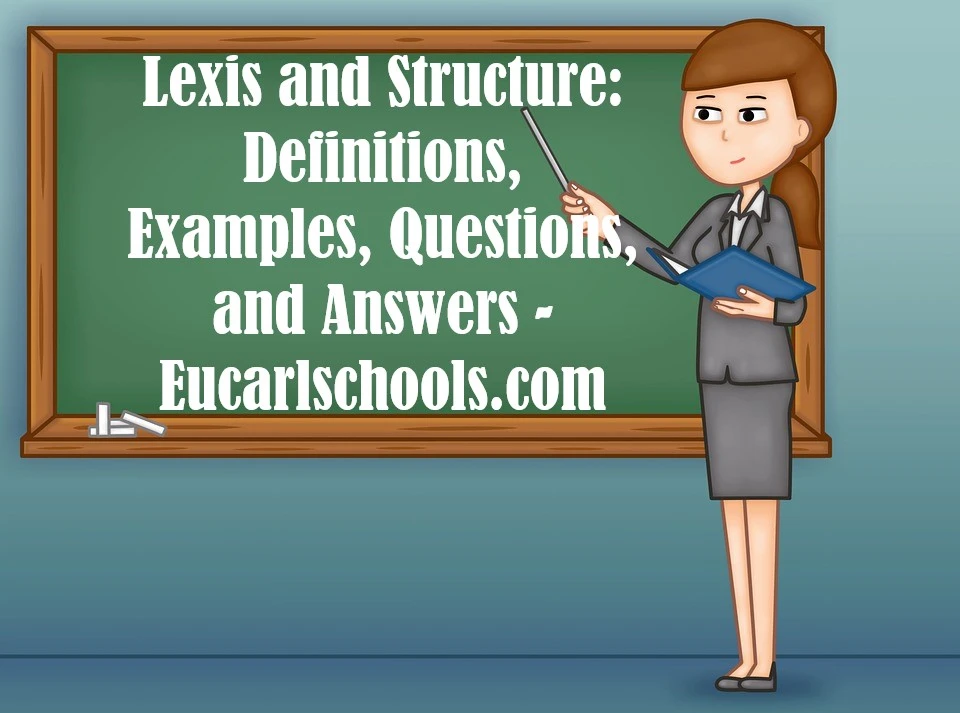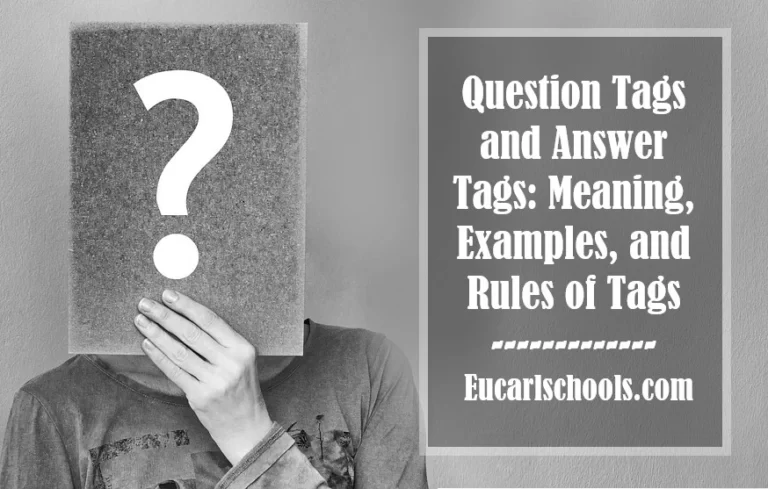Lexis and Structure: Definitions, Examples, Questions, and Answers
Lexis is simply the total words and phrases that are available in a particular language. The combination of words and phrases following a set of rules forms sentences. Based on these rules, there is an ordered pattern of these words, phrases, or clauses as the case may be taken which is known as structure.
At this juncture, it is important to state that lexis is way different from the lexicon. Lexicon simply refers to vocabulary available to a particular profession, language, or even subject. Lexicons are therefore synonymous with jargon.
Lexis and Structure: Definitions, Examples, Questions, and Answers

Aspects or Lexis
There are seven perspectives from which we could understand what lexis is about. They are:
Semantics
Diction
Synonym
Antonym
Polysemy
Homophones
Collocation
Semantics
This refers to the study of the relationship between words, phrases, or clauses to form a meaningful sentence. Semantics interests itself with finding out which is the better way words or lexical items could be used to obtain an understandable sentence.
Diction
This is simpler than the writer’s style of effective communication. There are words appropriate for certain contexts to generate the right response. It is the writer’s job to masterfully select the kind of words that would induce the aim he wishes to see.
So, there are certain words that are information that can not be deployed in informal situations and vice-versa. Slang words and colloquial words also are also good examples.
Synonym
To avoid repetitive use of certain words which degenerate into dull and uninteresting writings, writers are at liberty to replace words with other words nearest in meaning to them. These words could be replaced by phrases or even phrases replaced by words.
Antonym
Antonyms are the opposite of particular words. They are employed to evoke contrast. A fine example would be: dark is the antonym for bright; cold is the antonym for hot; dull is the antonym for interesting.
Polysemy
This sometimes is confused with synonyms. Whilst synonyms deal with nearest in meanings, polysemy concern a particular word having several meanings. A typical example would be root. Root could be what keeps a plant firm. It could also mean the actual cause of a situation. The root can also refer to the lower part of the teeth.
Homophones
Homophones are words that have similar pronunciations but different meanings. A perfect example would be weak and weak. Weak in the sense of lacking strength and weak as in days of a week. Reed and Read are also good examples.
Reed of dry plants found in the wilderness and Read in the sense of looking through the contents of a book. Sometimes, homophones can have some spellings. An example like rose suits perfectly. Rose could be a red beautiful flower and rose in the sense of the past tense of rising.
Collocations
There are certain words that are just a perfect fit for each other. They are what you call tag-along words. They include early risers, latecomers, or even crime fighters.
Lexical items
There are eight lexical items that classify the kind and functions of the words in the English language and they include:
Noun
Verb
Pronoun
Adjective
Adverb
Preposition
Conjunction
Interjection
Noun
They are naming words used for identification. They include man, boy, pencil, book, crown, and girl.
Verb
Verbs are words that convey the actions of a particular subject. They include: read, play, but, grow, jog, sweep, pray, live, praise, keep, and join.
Pronouns
These words are used in the stead of a noun to avoid redundancy and excessive repetitiveness. These are he, she, it, they, her, his, their, our, your.
Adjectives
Adjectives qualify and give much clearer descriptions of nouns. They include: sad, new, happy, playful, hot, warm, cold, big, and fat.
Adverbs
This particular lexical item qualifies the verbs. They give color to the kind of action the subjects are doing. Examples of adverbs include: quickly, jokingly, swiftly, speedily, fast, sharply, robustly, generously, and faithfully.
Preposition
They always precede the noun and pronoun and try to express the relationship between a particular word and another element in the sentence. Some examples of prepositions include: in, at, off, of, for, with, beside, between, into, up, above, inside, and outside.
Conjunction
These are simply linkage words. Conjunctions serve as connectors between two or more words. Conjunctions such as and, but, or, either, neither, with and all others are great examples.
Interjection
Interjections suggest suddenness and abruptness. They are used in remarks to show a particular tone in an expression. Ouch! Oops! Voila! Yay! Awesome! These are some of the many examples.
Lexis and Structure
Sentences are a combination of words, phrases, or clauses in a pattern to give meaning. This pattern gives birth to three basic kinds of sentences. They are:
Simple sentences
Compound sentences
Complex sentences
Simple Sentences
A simple sentence is formed between a single subject and a single verb which may or may not have an object.
She loves him.
They play ball.
Alicia went to school.
Compound Sentences
This type of sentence is formed by two simple sentences joined together by and, or but. These connectors link two independent clauses together.
They played ball and they later left for the church together.
They studied for so many hours, but, he later found out that the exams had been postponed.
He went to the studio and he trimmed his nails afterward.
Complex Sentences
A complex sentence is made of a clause that is independent and another clause that is dependent. Independent clauses can make sense alone whilst dependent clauses can not stand alone and make sense.
Deborah loved his writing still, but would not give him any credit.
I love taking pap on Saturdays even though it is not good for my system.






